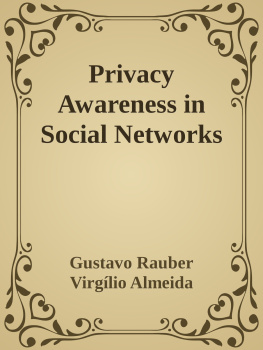ACKNOWLEDGMENTS
For years, because of what I knew about computer security (or rather the lack thereof), I refused to buy anything on the Web. Not an airline ticket. Not even a book from Amazon.com. Then one of my research assistants wanted a specific birthday present that could only be purchased on stupid.com, a website that sells things like a flying alarm clock, a book of seriously bad baby names, fetus-shaped soap on a rope, and Freudian slippers. I made the purchase and realized that, even though I was a decently paid, hopefully well-respected law professor, my entire digital profile was now that of a stupid.com user.
Today, its impossible to stay off the grid. In La Jolla, I had coffee with Ted Waitt, founder of Gateway Computers. He confessed that he was opposed to the data collection that occurs when a person uses a grocery chain savings card. But even as a billionaire, he couldnt resist taking advantage of the savings by using the card.
Now my preferences are revealed in thousands of ways by the Lori Andrews of the Web. From my Facebook profile to the website for my books, from my credit card purchases to my decision to check job postings, facts about me are floating through the ether and could be used against me. A stalker found me with just a quick glance at my book-signing schedule. Now he can learn my unlisted phone number and my home address through a free data aggregator. And unlike the grocery savings card, which I could choose not to use, I am not even informed aboutlet alone allowed to controlwhat information is made available about me.
As Ive written this book, Ive been fascinated by how my profile on the Web has changed. When I was doing research about the virtual Texas deputies who sat in pubs and digitally patrolled the border, the following ads popped up on my computer: Designer Heels Only $39. Newegg Business Store: Computers, Office Equipment, Office Supplies, Software and more! And, Earn a Homeland Security Degree & Become a Border Patrol Agent Today!
Yeah, thats me. A Christian Louboutinwearing, software-wielding border cop.
And I shudder to think of all the misconceptions Ive fostered in the digital profiles of the lawyers, law students, and other research assistants who have come along with me on this journey across the Facebook Nation. Hats off to Jen Acker, Sarah Blenner, Molly Brown, Robert Ennesser, Amanda Fraerman, Daniel Hantman, Kayla Kostelecky, Jake Meyer, Sarah Nelson, Elizabeth Raki, Cynthia Sun, and Keith Syverson. Theyve bravely marched into web searches using the suspect Homeland Security terms; found troubling online photos; investigated cyberharassment; sought out the data that aggregators have collected about them; and found, read, and analyzed hundreds of cases, statutes, and studies about social networks and their technological predecessors. I couldnt have done this book without their help, the advice of Emily Barney, and the amazing aid of the students in my Law of Social Networks seminarBrandon Brooks, Samuel Coe, Alexis Crawford, Ashley Crettol, Alyssa Graber, Michelle Green, Jaclyn Hilderbrand, Richard Komaiko, Jeremiah Lewellen, Rachel Mercer, Elizabeth Meyer, Lauren Ortega, Oscar Rivera, Gabriela Sapia, William Saranow, and Mark Silverman.
I also owe a deep debt of gratitude to William Stubing and the Greenwall Foundation for funding my analysis of health information on social networks and to my colleagues at Chicago-Kent College of Law, some of whom pioneered the field of internet law. A special thanks to law professors Richard Warner, Hank Perritt, and Ron Staudt, pillars in cyberspace, who couldnt have been more gracious and helpful as I entered the field. Once again, Dean Hal Krent made himself available to read chapters and give sage advice about the direction of my project. A 40-professor, cross-disciplinary social networks group, headed by psychologist Ellen Mitchell at the Illinois Institute of Technology, helped provide the context for my work. The people who lived through the cases highlighted in the book, including Cynthia Moreno, Kenneth Zeran, and attorneys Eric Goldman, Jennifer Lynch, Laura Pirri, Dennis Riordan, and Julie Samuels, generously shared their stories with me.
And I couldnt face any task in my lifeincluding writing a bookwithout the aid and comfort and editing advice of those dearest to me. Thanks once again to Christopher Ripley, Lesa Andrews, Felice Batlan, Francis Pizzulli, Clem Ripley, Jim Stark, and Darren Stephens. And to Amanda Urban and Emily Loose for believing in this project and always asking the most provocative questions.

LORI ANDREWS is a law professor and the director of the Institute for Science, Law and Technology at Illinois Institute of Technology. A frequent guest on The Oprah Winfrey Show, 60 Minutes, Today, and Nightline , she was named a Newsmaker of the Year by the ABA Journal and one of the 100 Most Influential Lawyers in America by the National Law Journal . She has served as a regular adviser to the U.S. government on new technologies, including chairing the federal committee concerning ethical and legal issues involved with the Human Genome Project. Learn more at www.loriandrews.com .
MEET THE AUTHORS, WATCH VIDEOS AND MORE AT
SimonandSchuster.com
THE SOURCE FOR READING GROUPS
JACKET DESIGN BY ERIC FUENTECILLA
COPYRIGHT 2012 SIMON & SCHUSTER
ABOUT THE AUTHOR
Lori Andrews is a law professor and the director of the Institute for Science, Law and Technology at the Illinois Institute of Technology. A frequent guest on Oprah, 60 Minutes, Today, and Nightline, she was named a Newsmaker of the Year by the American Bar Association Journal and one of the 100 Most Influential Lawyers in America by the National Law Journal. She has served as a regular advisor to the U.S. government on new technologies, including chairing the federal committee concerning ethical and legal issues involved with the Human Genome Project. Learn more at www.loriandrews.com . And vote on the Social Network Constitution at www.socialnetworkconstitution.com .

Facebook Nation
When David Cameron became Britains prime minister, he made an appointment to talk to another head of stateMark Zuckerberg. Yes, that Mark Zuckerberg: the billionaire wunderkind, the founder of Facebook. At the meeting at 10 Downing Street, Prime Minister Cameron and Facebook President Zuckerberg discussed ways in which social networks could take over certain governmental duties and inform public policymaking.
A month later, Zuckerberg and Cameron had a follow-up conversation, later posted on YouTube. Cameron, dressed in suit and tie, chatted with Zuckerberg, who wore a blue cotton T-shirt. Basically, weve got a big problem here, Cameron pointed out to Zuckerberg, describing the U.K.s financial woes.
Zuckerberg outlined how Facebook could be used as a platform to decrease spending and increase public participation in the political process: I mean all these people have great ideas and a lot of energy that they want to bring and I think for a lot of people its just about having an easy and a cheap way for them too to communicate their ideas.


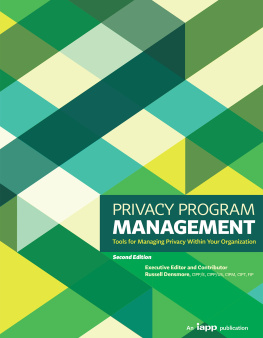
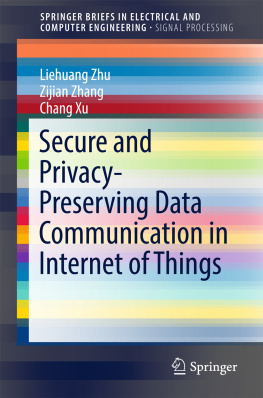
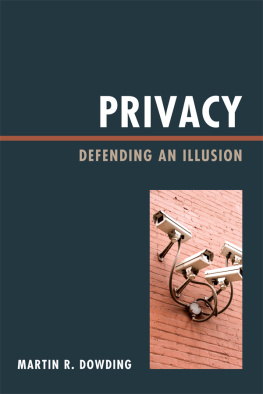
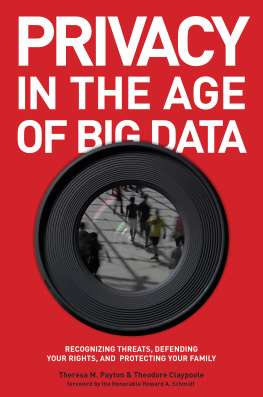

![switching.social [switching.social] - The Switching Social Handbook](/uploads/posts/book/131346/thumbs/switching-social-switching-social-the-switching.jpg)
